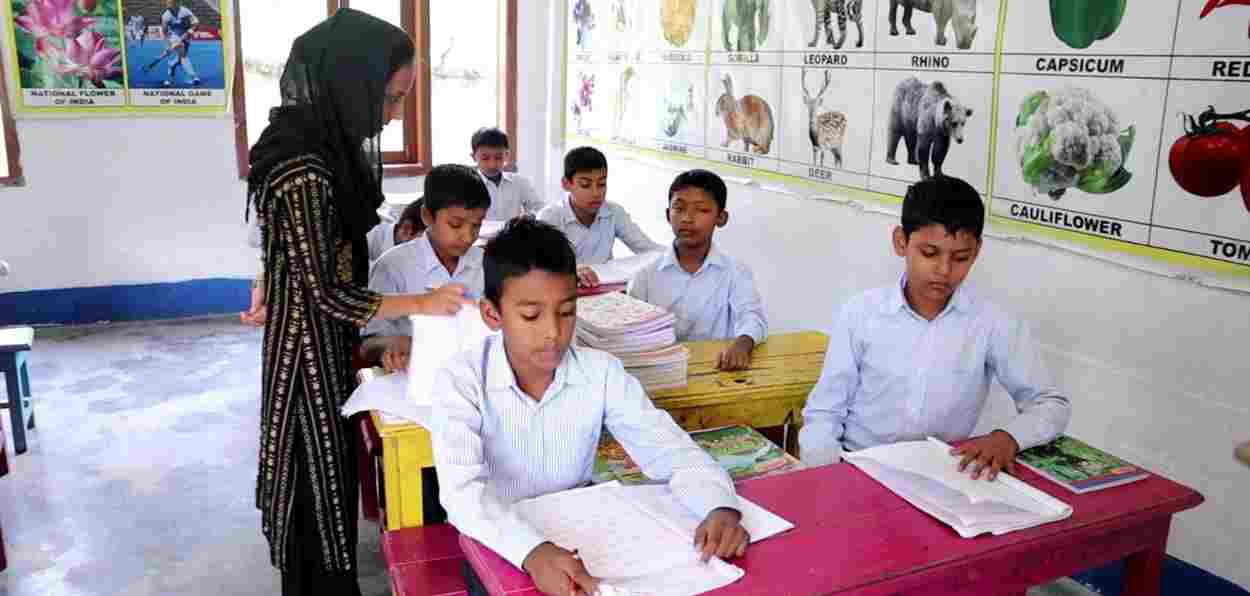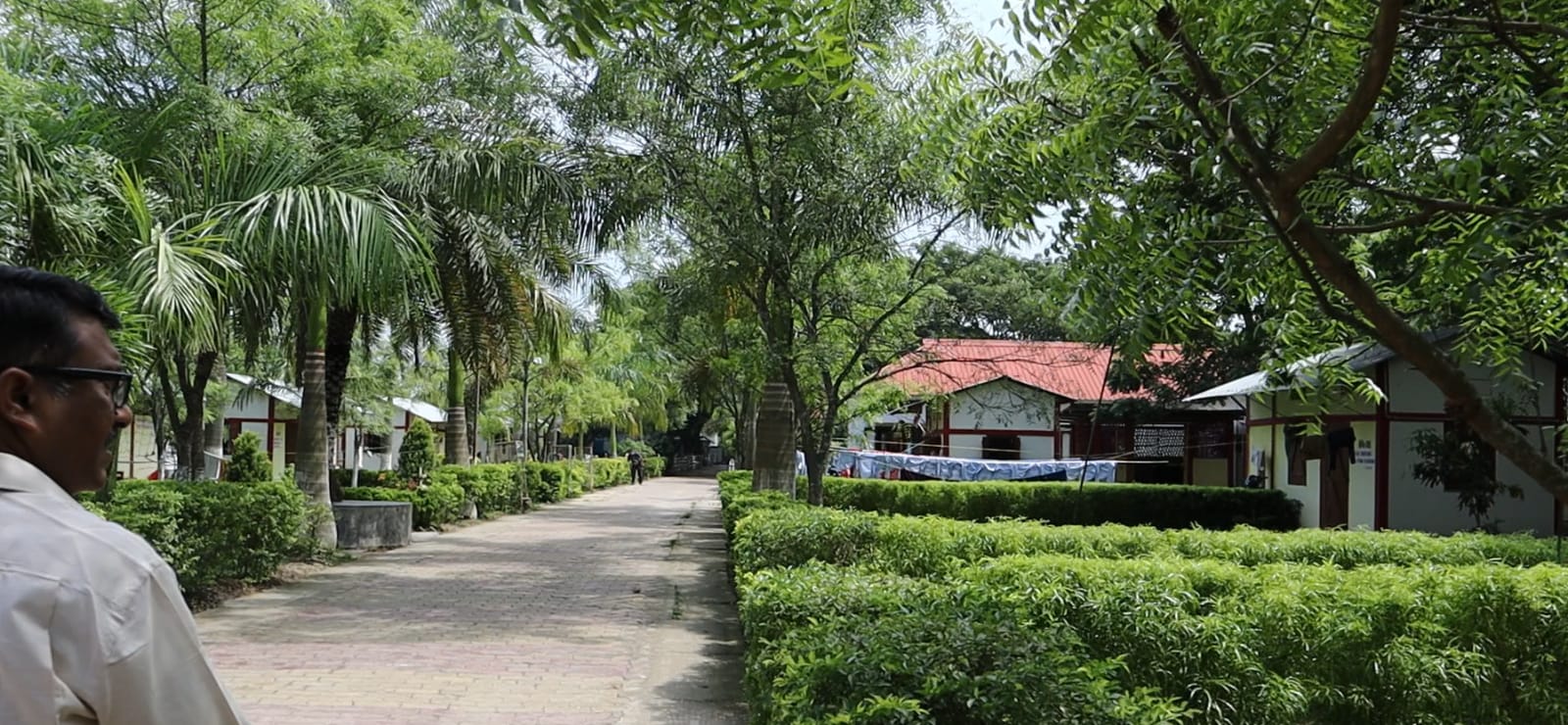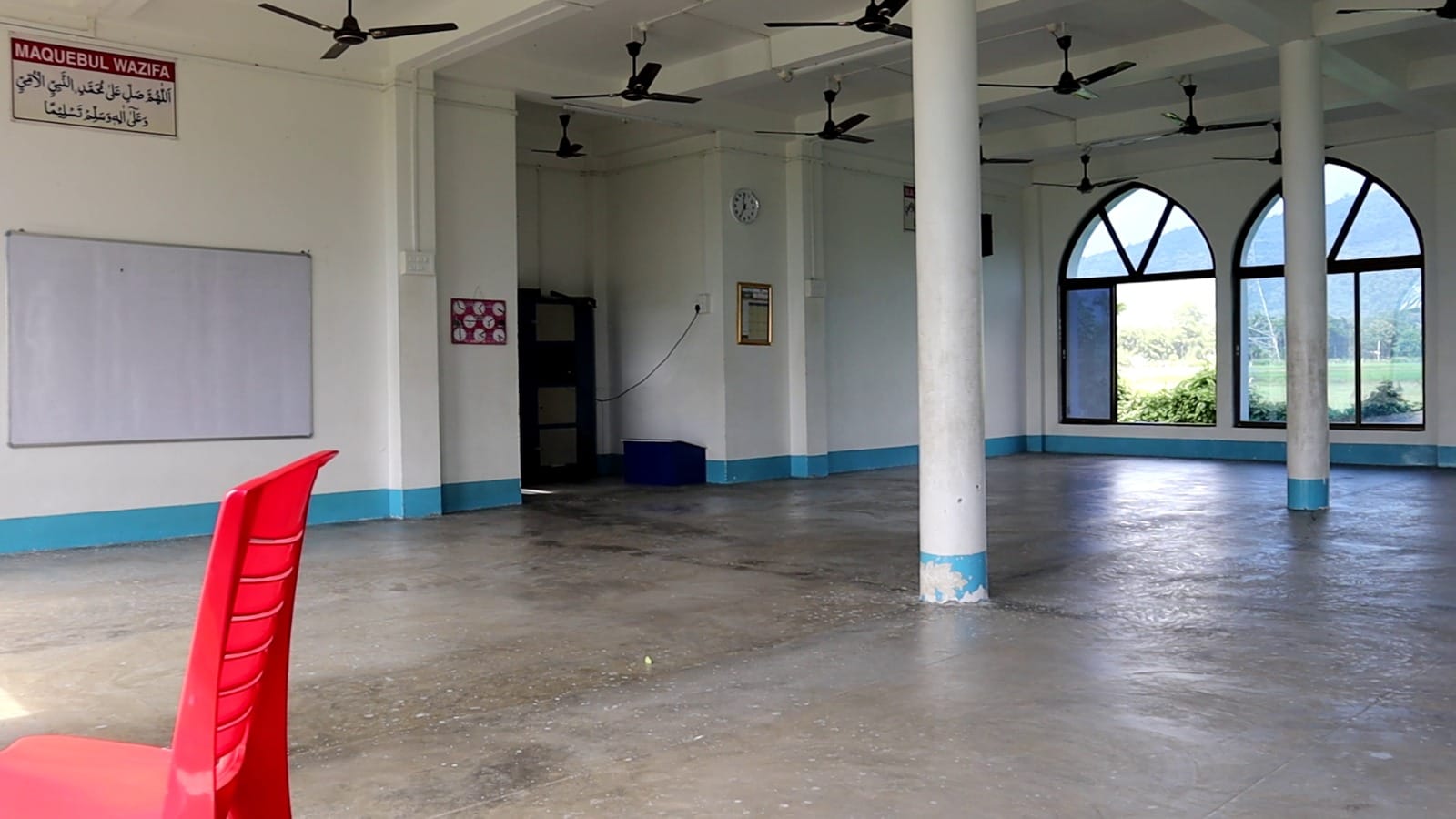
Imtiaz Ahmed & Ariful Hussain/ Bhelowguri (Hojai)
Is your child bright in studies? Do you want his/her holistic development in academics? Do you want him/her to be educated with modern education? Maybe you cannot afford such education. However, no parent in this situation needs to worry; The Ajmal Foundation, a charitable organisation run by the family of perfume baron and politician Maulana Badruddin Ajmal is there to help you.
The Ajmal Modern Residential School at Bhelowguri in Dabaka area of the Hojai district of central Assam has all the provisions for education and development of a child.
Set up in 2019, just before the Covid-19 outbreak, the school, located amid the lush green paddy fields of Bhelowguri village, has classes from four to eighth standards. However the founders say they would like it to be expanded to Class XII level in the near future.
The school gives admission to the meritorious children from the economically backward families of the remote areas of Assam and other States of the Northeast. It provides free education, accommodation, food, healthcare and other facilities.
The school has on roll 132 students and it follows NCERT curriculum. The management is working on getting the CBSE affiliation and would introduce the CBSE education curriculum. It is run by 40 employees, including 12 faculty staff.

The lush green campus of the Residential school
Not only does the school provide modern education to the children, it also has provisions for basic religious teachings and sports.
Principal Md Sahab Uddin said: “Although the school started in 2019, the natural calamity in 2020 forced our management to send the students back to their homes for the pandemic period. We resumed after the pandemic break and the school is doing well with the number of students increasing. Although the school was initially for students from the Hojai and the Nagaon districts, we now have students from far-flung areas of Assam as well as other states. … Most of the students are from very poor families of remote areas who cannot afford modern education. We provide free education along with accommodation, food, healthcare etc for the holistic development of the children.”
“We run our school on a scientifically designed rooster starting from Fazr namaj (dawn prayer). Five-time prayer is compulsory for every Muslim student of our school. After the dawn prayer we start classes which continue till about 7 am. Thereafter, the children are served tea and snacks, followed by physical education, bath and restroom break, breakfast and again classes till about 12.30 pm. After prayers and lunch, children rest and thereafter they have doubt clearing classes followed by games and sports. Classes resume again after the Magrib namaj (prayer at dusk) and continue till about 8 pm. Supper and dinner is followed by self-study for the older students while those of Class IV and V go to bed,” Sahab Uddin said.
He said the students are not only served three-time meal but also health drinks and fruits daily. “Their nutrition is taken care of so well that even those brought up at homes might sometimes not be taken care of in such a way,” he added.
Regarding religious education, the principal said: “We have provision for elementary education in Islam. It’s mandatory for all Muslims students to attend Muktab (Islamic elementary education) regularly. We have a mosque on campus for daily prayers.”

Prayer Hall of the School
The faculty and students are accommodated within the campus. The students are accommodated in hostels, and the staff is provides with separate residential quarters.
“This is an initiative of Ajmal Foundation’s trustees – led by Maulana Badruddin Ajmal - who follows the motto of ‘Ajmals for Education and Education for All’. Under the initiative, we provide complete free education to the under-privileged children from the remotest areas.
The late Haji Ajmal Ali Saheb had willed that the trust should not be used for the family … We are self-sufficient to serve the needy children with much needed education,” said Ajmal Foundation’s director Dr Khasrul Islam.
ALSO READ: St Joseph’s Hospital witnessed Kashmir’s first Christian massacre by Pak raiders
Ajmal Foundation also runs several other residential modern education schools and colleges in Hojai and other parts of Assam. Those are, however, operated as paid institutions maintaining all campus rules of other institutions of the organisation. “We charge full fees from those who can afford; half from those who belong to weaker backgrounds and do not charge anything from those who cannot afford at all. Thus, we maintain our self-sufficiency,” Dr Islam explained.
